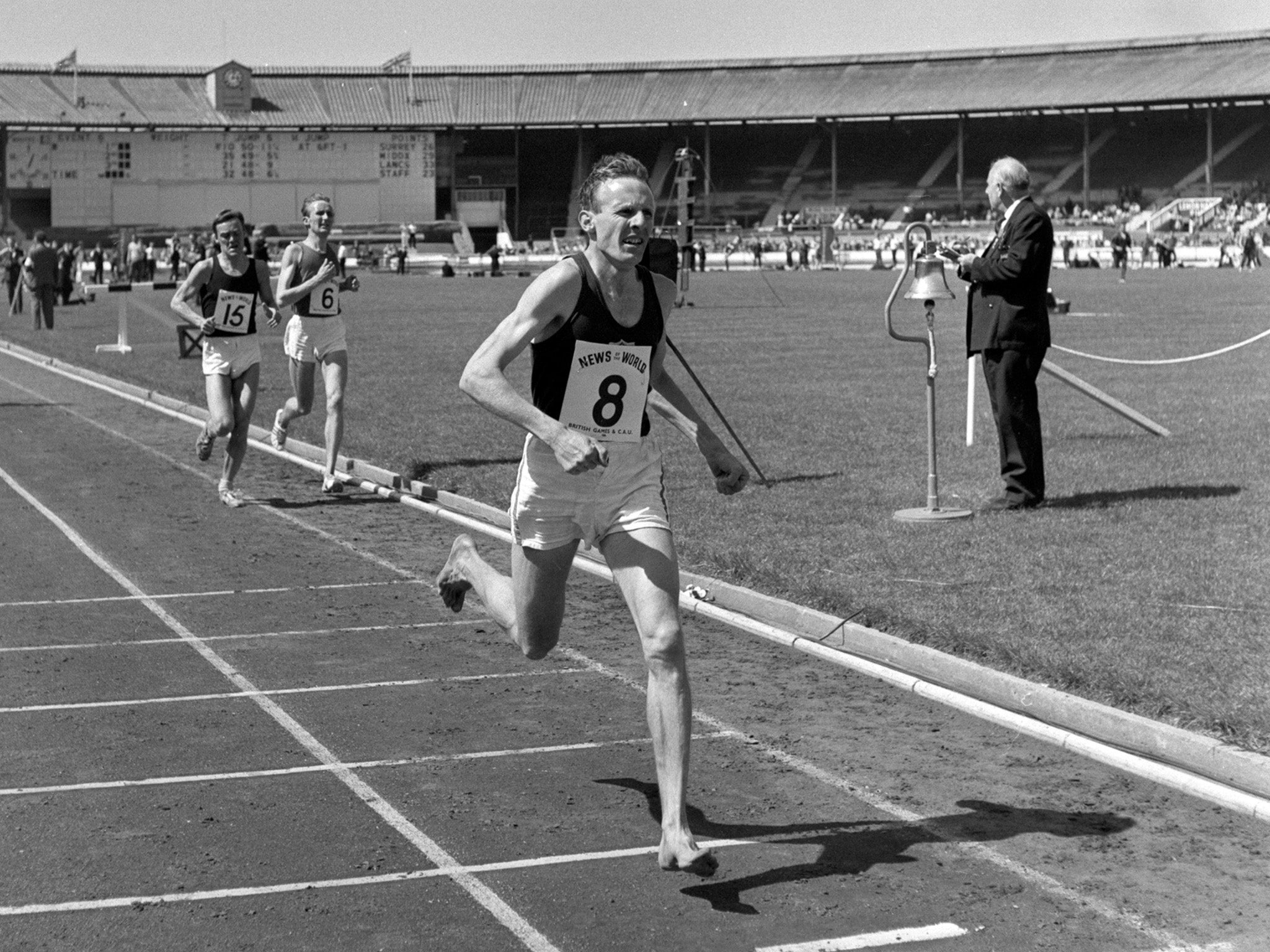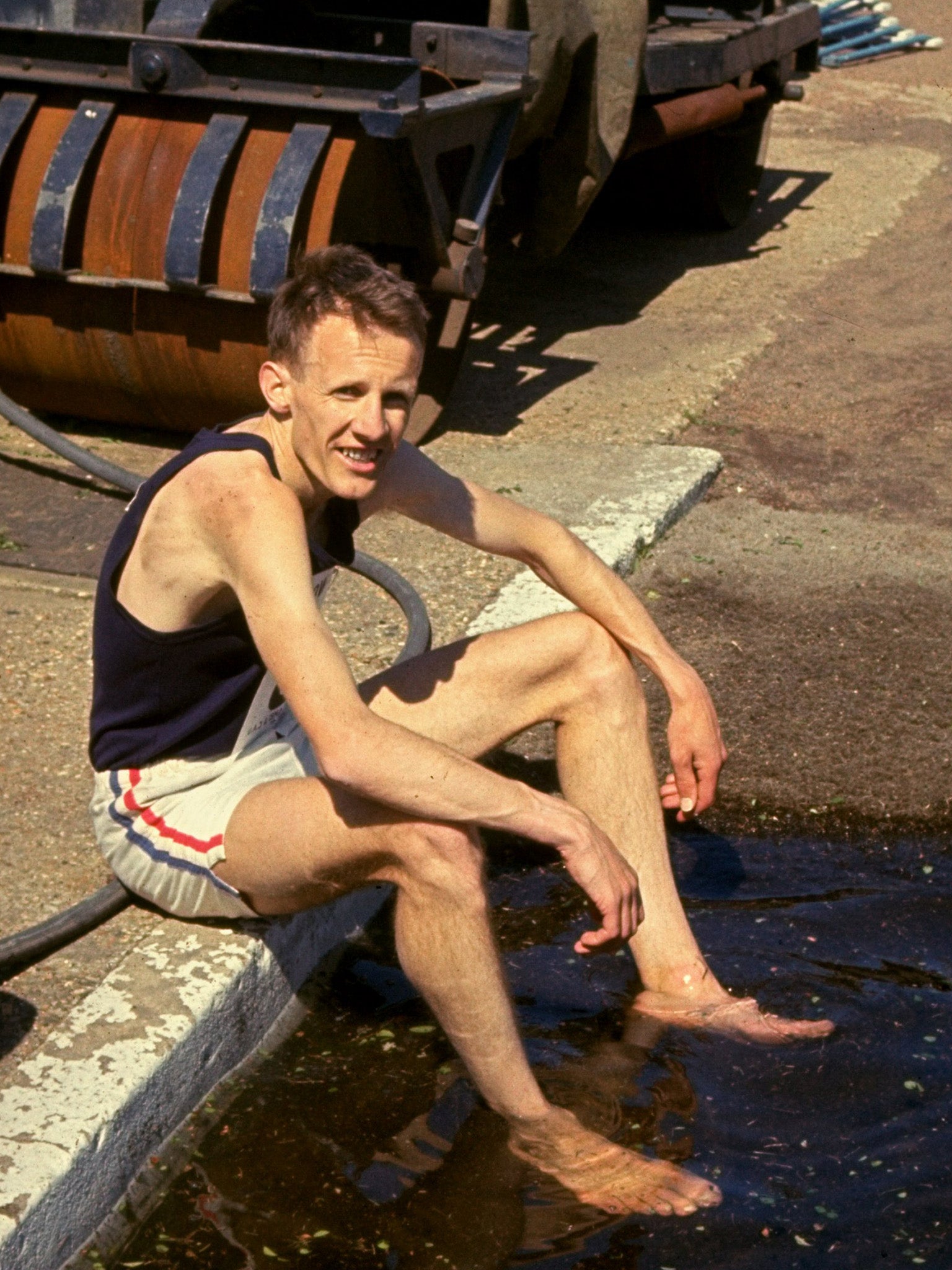Bruce Tulloh: Long-distance runner who broke records in bare feet
His achievements on the track outweighed any reservations selectors had about what had seemed like a gimmick

Your support helps us to tell the story
From reproductive rights to climate change to Big Tech, The Independent is on the ground when the story is developing. Whether it's investigating the financials of Elon Musk's pro-Trump PAC or producing our latest documentary, 'The A Word', which shines a light on the American women fighting for reproductive rights, we know how important it is to parse out the facts from the messaging.
At such a critical moment in US history, we need reporters on the ground. Your donation allows us to keep sending journalists to speak to both sides of the story.
The Independent is trusted by Americans across the entire political spectrum. And unlike many other quality news outlets, we choose not to lock Americans out of our reporting and analysis with paywalls. We believe quality journalism should be available to everyone, paid for by those who can afford it.
Your support makes all the difference.Long before there was Forrest Gump there was Bruce Tulloh, the barefooted British athletics phenomenon whose record-shattering run across the United States in 1969 overshadowed even his success in becoming European champion at 5,000m seven years earlier.
Tulloh, who has died at the age of 82 after suffering from cancer, was perusing The Guinness Book of Records in 1968 when he noticed an entry for running across America and determined to beat it. Supported by his wife Sue, who drove a caravan for him to sleep in, but with no background in marathons, the wiry, diminutive Tulloch completed the 2,876-mile slog from Los Angeles to New York in less than 65 days, knocking four days off the record. He wrote about the experience in a best-selling book, Four Million Footsteps, one of 23 he had published.
Born in Datchet, Berkshire, and educated at nearby Wellington College, Tulloh won his first race at 12 and was inspired to dedicate himself to the sport by the Czech long-distance runner Emil Zatopek at the 1948 Olympic Games in London.
At Southampton University, where he graduated in botany, he was in the team that won the national cross-country championship. In 1959 he began competing without running shoes – provided the surface was conducive – because he felt they hampered his performance. The first non-African to eschew footwear at elite level, he won a British Amateur Athletics Association title at three miles within three months. He later joked that barefoot was “the lightest running shoe ever”.

By 1960 his achievements on the track outweighed any reservations Great Britain’s selectors had about his what at first had seemed gimmicky or eccentric. Tulloh was selected for the Olympics but failed to produce his best form in the severe heat and humidity of Rome.
In 1962, when Tulloh ran a sub-four-minute mile, the European Championships in Belgrade saw him excel. He travelled to Yugoslavia as the British record-holder at one, two, three and six miles, and with 700 of the 5,000 metres remaining he “decided to kick” to shake off his Soviet and Polish rivals. The tactic won him the gold medal.
Tulloh was confident of repeating the feat in the 1964 Tokyo Olympics, only to miss the games after contracting measles from son Clive. He returned to set a British record for six miles in 1966, retiring from competition the following year. At 60 he ran a half-marathon in 1hr 16min; at 75 he walked the Athens Marathon with Sue; and at 80 he walked 80 miles from Wiltshire to London in aid of Age UK.
For two decades he taught biology at Marlborough College while continuing to coach athletes such as Mike Boit, an Olympic medallist at 800m, and Richard Nerurkar, the World Marathon Cup winner. Twin daughters Katherine and Jojo, running barefoot, were outstanding teenage athletes in the 1980s.
Tulloh also drew on the wisdom accrued in 60 years of competing and 40 spent coaching by writing for Runner’s World and Athletics Weekly, sharing with readers his mantra: “Running should be fun.”
He is survived by Sue and their children Clive, Jojo and Katherine.
Bruce Tulloh, runner, born 29 September 1935, died 28 April 2018
Join our commenting forum
Join thought-provoking conversations, follow other Independent readers and see their replies
Comments